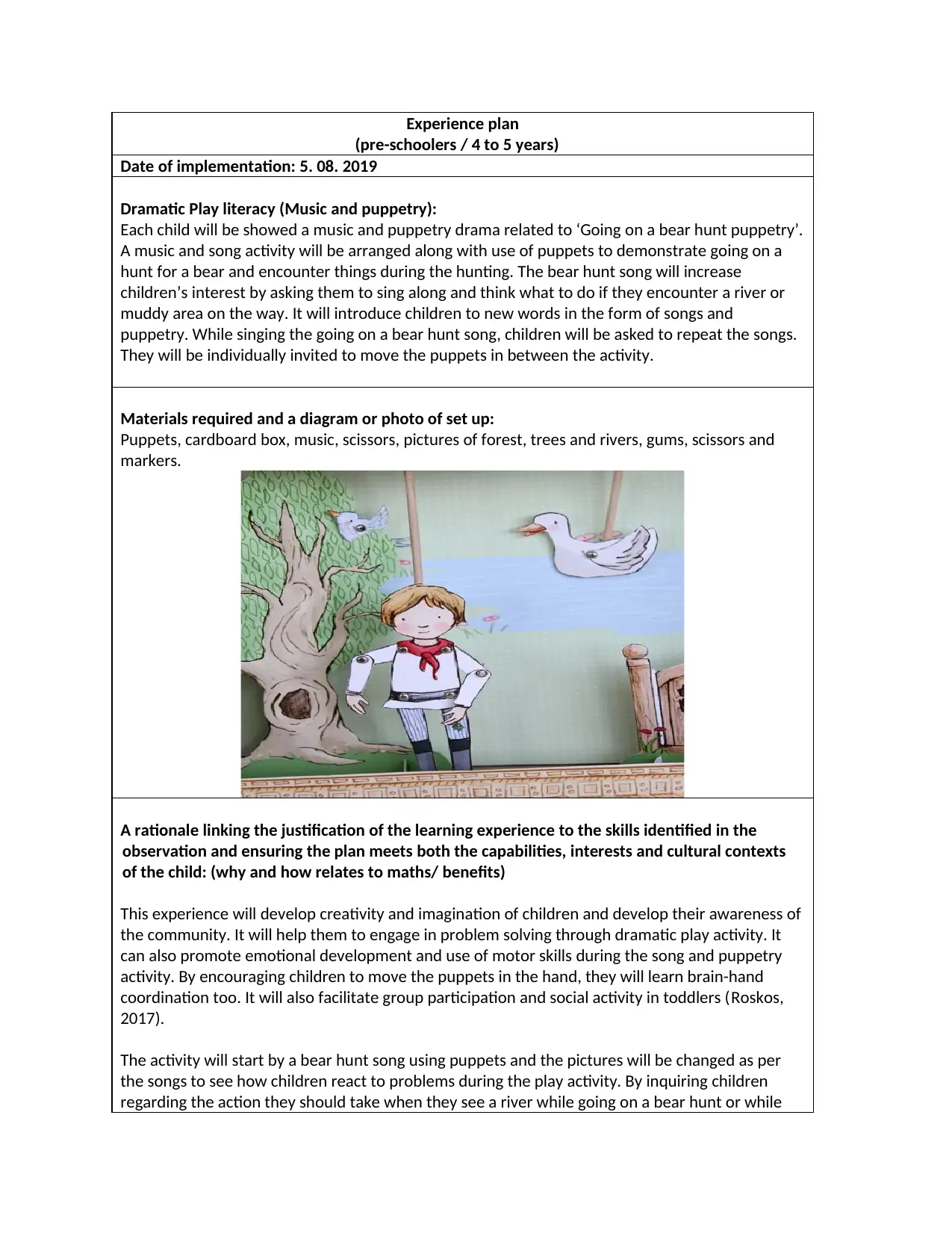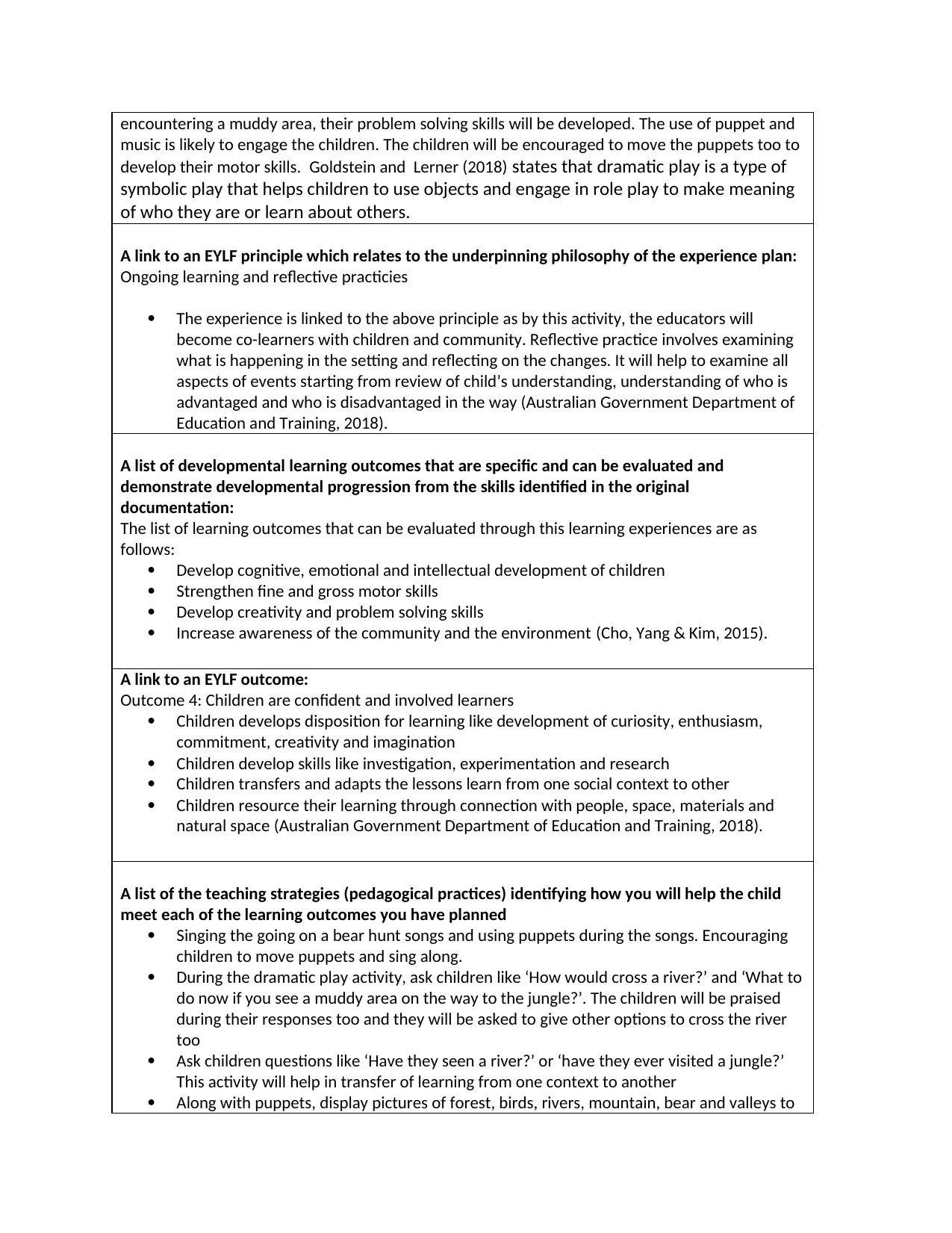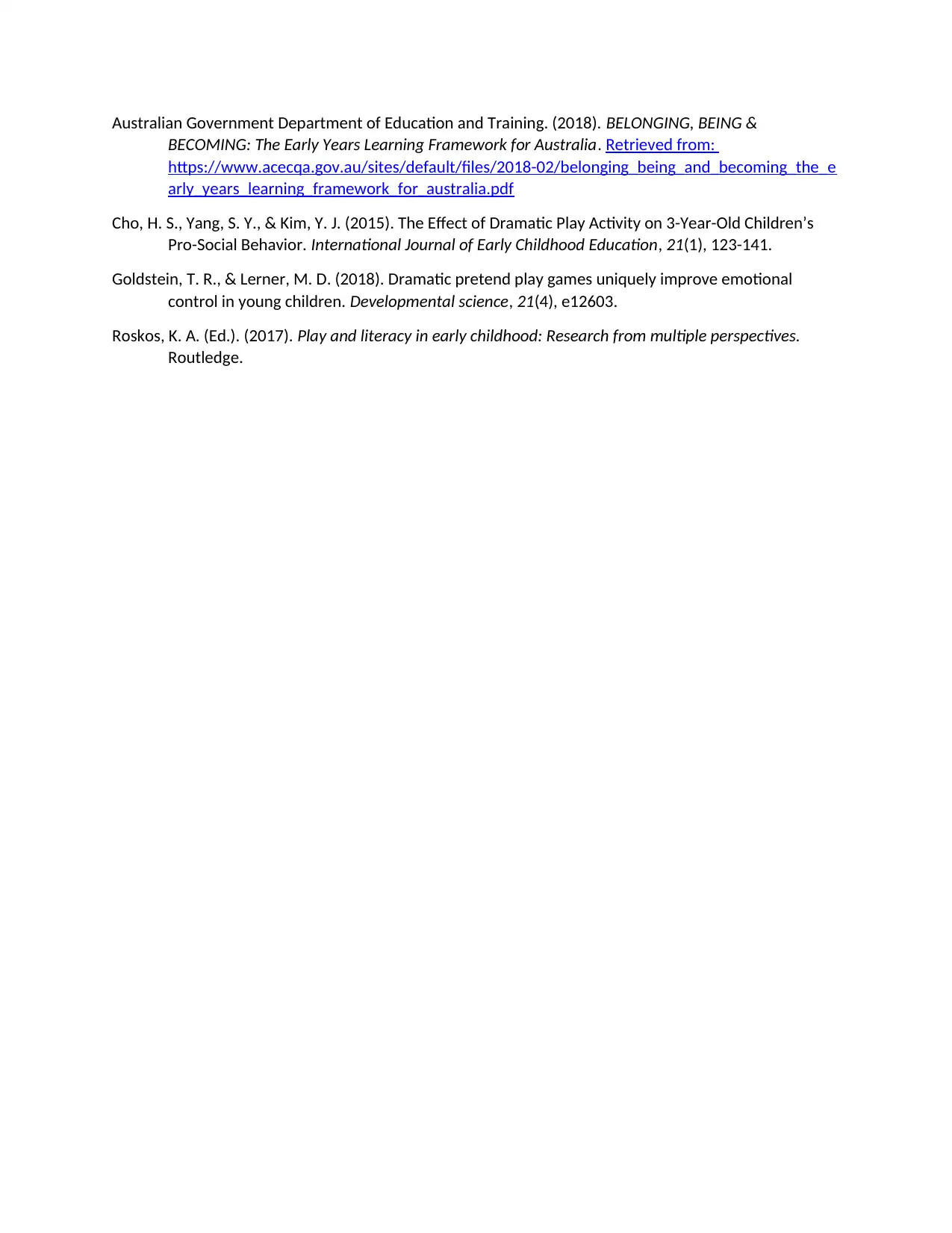Early Childhood Education: Experience Plan for Dramatic Play Activity
VerifiedAdded on 2022/10/17
|4
|1039
|13
Practical Assignment
AI Summary
This assignment presents a detailed experience plan designed for preschool children aged 4-5 years. The plan focuses on a dramatic play activity centered around a 'Going on a Bear Hunt' theme, incorporating puppetry and music to enhance literacy skills. The plan outlines the activity's implementation, materials required, and a rationale that links the experience to developmental skills, ensuring it meets the children's capabilities, interests, and cultural contexts. It also connects the activity to the Early Years Learning Framework (EYLF) principles and specifies measurable learning outcomes, including cognitive, emotional, and motor skill development. Teaching strategies involve singing songs, using puppets, and posing questions to encourage problem-solving and active participation. The plan references relevant research and provides a framework for evaluating the learning experience's effectiveness. The assignment also briefly mentions a second experience plan about Lego bridge construction, demonstrating a range of activities for preschool children. The assignment provides a comprehensive guide for educators to facilitate engaging and educational experiences for young children.
1 out of 4











![[object Object]](/_next/static/media/star-bottom.7253800d.svg)